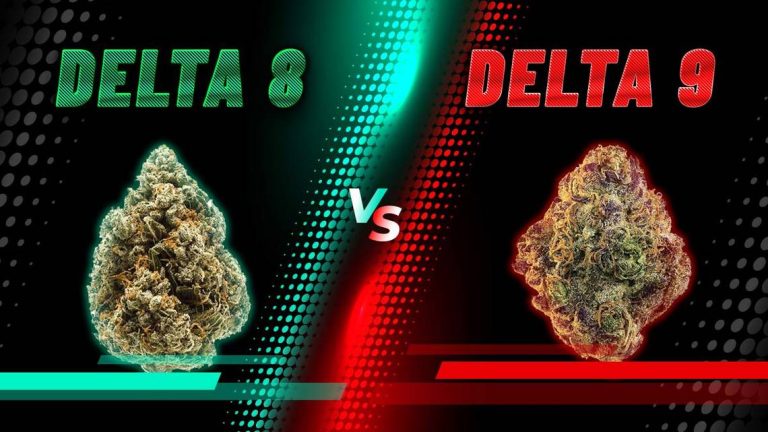Delta-8 gummies and Delta-9 gummies are two popular options in the world of cannabis-infused edibles, each with its unique characteristics and effects. As an alternative to the main psychoactive component in cannabis, Delta-9 THC, the hemp cannabinoid delta-8 THC has become popular due to its less intense intoxicating effects. To better meet their individual tastes and expectations, customers would do well to familiarize themselves with the distinctions between Delta-8 and Delta-9 gummies.
1. Chemical Structure and Effects
The primary difference between Delta-8 and Delta-9 gummies lies in their chemical structures and effects on the body. Delta-8 THC and Delta-9 THC are both cannabinoids, but they have slight variations in their molecular structures, leading to differences in their psychoactive effects.
While Delta-9 THC is famous for its great euphoria and powerful psychoactive effects, Delta-8 THC is frequently characterized as generating a milder, more cerebral high with less severe effects. Therefore, those who are sensitive to THC’s effects or who want a gentler high may find that Delta 8 gummies provide a more controllable experience.
2. Legality
The legal status of Delta-8 and Delta-9 gummies is another one of the important differences between the two types of candies, notably in the United States. Hemp, which contains less than 0.3% delta-9 THC, is commonly used to produce delta-8 THC. According to the Farm Bill of 2018, this kind of THC is considered to be lawful at the federal level.
With that being said, the legality of Delta-8 THC products has been called into question in a number of states, which has resulted in regulatory confusion and the possibility of legal challenges. Nevertheless, according to federal law, Delta-9 THC is categorized as a restricted drug that falls under Schedule I, with the exception of states that have legalized the use of cannabis for either medicinal or recreational purposes.
3. Psychoactive Effects
The degree and character of the psychoactive effects that can be produced by Delta-8 and Delta-9 gummies can differ greatly from one another despite the fact that both compounds cause these effects. When opposed to Delta-9 THC, Delta-8 THC is often regarded as having a subtler and less overpowering high due to its lower concentration.
Users of Delta-8 gummies can enjoy sensations of relaxation, pleasure, and moderate drowsiness. However, they can not experience the powerful psychoactive effects that are often associated with Delta-9 THC, such as anxiety or paranoia. As a result, Delta-8 gummies are a possibly ideal alternative for persons who are new to cannabis or who desire a more moderate experience.
4. Potential Therapeutic Benefits
Both Delta-8 and Delta-9 THC have been studied for their potential therapeutic benefits, although research on Delta-8 THC is relatively limited compared to Delta-9 THC. Delta-8 THC is believed to exhibit similar therapeutic properties to Delta-9 THC, such as anti-inflammatory, analgesic, anxiolytic, and appetite-stimulating effects.
Some users of Delta-8 gummies report using them to alleviate symptoms such as pain, anxiety, nausea, and insomnia. However, more research is needed to fully understand the therapeutic potential and safety profile of Delta-8 THC compared to Delta-9 THC.
5. Availability and Accessibility
The availability and accessibility of Delta-8 and Delta-9 gummies can vary depending on local regulations and market trends. Delta-8 gummies are becoming increasingly popular and can be found in dispensaries, online retailers, and specialty stores that sell hemp-derived products.
However, due to regulatory concerns and legal ambiguity, the availability of Delta-8 gummies can be limited in some areas. In contrast, Delta-9 gummies are more widely available in states where cannabis use is legalized for medical or recreational purposes, although purchasing them typically requires visiting a licensed dispensary.
Conclusion
Delta-8 and Delta-9 gummies offer distinct experiences and effects, making them suitable options for different preferences and needs. While Delta-8 THC can provide a milder and more manageable high with potentially fewer adverse effects, Delta-9 THC offers stronger psychoactive effects and a broader range of potential therapeutic benefits.
Consumers should consider factors such as legal status, psychoactive effects, potential therapeutic benefits, and accessibility when choosing between Delta-8 and Delta-9 gummies. As the market continues to evolve, ongoing research, regulation, and consumer education will play crucial roles in shaping the future of cannabis-infused products.

